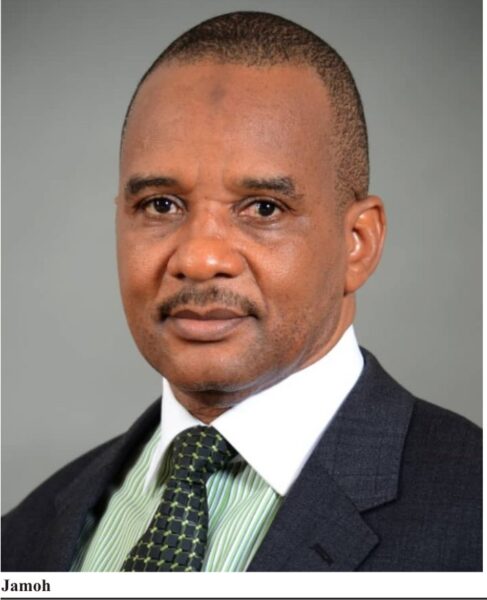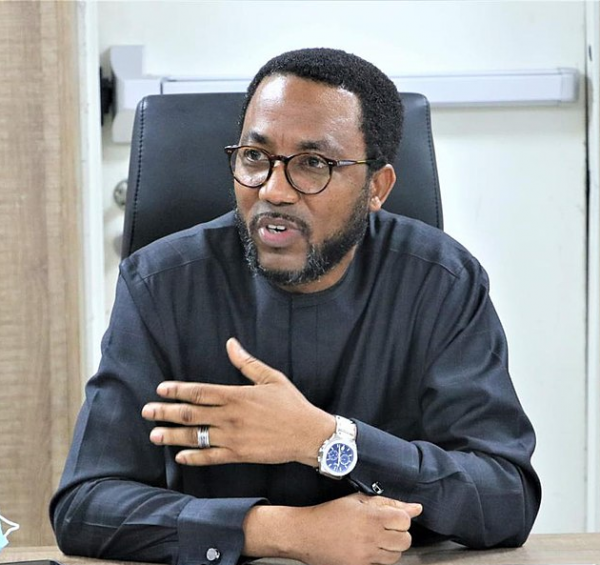Shippers’Council: Appraising The Ports Regulation Performance
The

affirmation of the Nigerian Shippers’ Council (NSC) as the seaports economic regulator by President Muhammadu Buhari at the maritime seminar for judges which held in Abuja recently as well as the agreement by participants at the event that the Council should be allowed to transform into the proposed National Transport Commission (NTC) is a great testimony to the positive impact it has made as a regulator in the last about two and a half years.
President Buhari had said in his speech at the event that the Council has lived up to its appointment as a seaport regulator meant to complete the reforms in the Nigerian seaports , encourage transparency enhance the efficiency, competitiveness and economic viability of the maritime sector as well as boost revenue generation and patronage of the seaports.
The satisfaction of the Buhari administration with the role the Shippers’ Council has played overtime as a regulator of the Nigerian seaports, thus informed the new directive that has been given to it by the President of the country to produce a viable blueprint for maximum exploitation of the economic potentials of the maritime industry.
Confidence
When the Federal Government appointed the Council as the regulator of the seaports precisely on February 20, 2014, it was apparently due to the confidence it reposed in it that it has the capacity , capability , the personnel and the technical knowhow to perform in the position, having being discharging such similar functions by virtue of its Act.
The consensus in the maritime sector is that the Council has justified its appointment for the fact that its activities as an economic regulator have recorded tremendous gains for the operators, the seaport sector and the economy while it has been able to provide a level playing field for all the stakeholders in the seaport sector as well as acted as an unbiased umpire which has given everybody a shoulder to lean on.
Gains
According to Barrister Hassan Bello, the Executive Secretary/CEO of the Shippers Council, what the Council has been doing as an economic regulator was to address the anomalies in the port system which has made it impossible for the economy to enjoy the gains of the port reforms which he said are now becoming very manifest because of the various policies of the regulator.
It will be recalled that the seriousness with which the Council had approached its duties few months after it was appointed as a regulator had made the Federal Government to issue a Gazette on its appointment , thus affirming it to perform the functions of a regulator and calling for the support of all the stakeholders for its new role.
Illegal charges
Undoubtedly, one of the major gains of the council as an economic regulator has been that of ensuring that no stakeholder engages in any form of imposition of arbitrary and illegal charges on the consumers of shipping services anymore following the axe it wielded on the concessionaires and the foreign shipping lines agencies when it reduced their charges in 2014.
The Council had in 2014 increased the free period in which goods would not pay rents at the ports to five days from the erstwhile three stipulated by the terminal operators as well as reviewed downwards some of their charges while it also reduced the terminal charges of the foreign shipping agencies as well as directed that they must refund container deposits not later than seven days.
This is why the pioneer Chairman of the Council for the Regulation of Freight Forwarding in Nigeria (CRFFN) and a board member of the Association of Nigerian Licensed Custom Agents(ANLCA) , Mr Tony Nwabunike in an interview recently lauded the Shippers’ Council for excellent performance as an economic regulator adding that its decision to review downwards the arbitrary charges of the providers of shipping services has made it impossible for any stakeholders in the sector to hike charges without the permission of the Council.
Litigation
Though the concessionaires and the foreign lines had challenged the decision of the Council in court in December 2014, the outcome still favoured the Council as the Judge had affirmed its appointment by the federal government as an economic regulator which has the right to review the charges of the shipping services providers and had thus directed them to refund the excess charges running into billions of naira which they have collected from shippers through the Council.
Efficiency
The Chairman of the Nigerian Ports Consultative Council (NPCC) , Otunba Kunle Folarin has also said recently that the Shippers’ Council has discharged its functions as a regulator in a most professional and very efficient manner while it has sanitized the operations of the stakeholders in the sector and checked arbitrary and illegal increase in charges.
According to him, the effective way the Shippers’ Council has performed its role has given the Nigerian ports especially the Lagos seaports the opportunity to emerge soon as the preferred destination for other ports in the West and Central Africa sub region.
Also impressed by the performance of the Council so far as an economic regulator, the former president of the Nigerian Bar Association (NBA) who has also been the ex- President of the Civil Liberty Organization (CLO) , Chief Olisa Agbakoba was of the view that that the task of the council ought to be upgraded to that of the economic regulation of the maritime sector because it had succeeded in vastly enhance the contributions of the seaports to the economy.
Standard tariff
The President of the African Freight Forwarders Association (AFFA) , Chief Lexczy Nwangwu stated that said it was commendable that the council has also almost completed work on a standard tariff system that will facilitate the reduction of tariff in seaport sector to between 30 and 40 per cent, adopted measures to get loan facilities for truckers to enable them purchase new vehicles as well as working towards a new Port Order that will ensure efficiency and transparency in the activities of stakeholders in the sector.
The Founder of the National Association of Government Approved Freight Forwarders (NAGAFF), Chief Boniface Aniebonam said in his reaction to the impact of the Council that it has added value to the seaport sector as well as the operations of the stakeholders.
Trade Facilitation
‘The Council has also been able to create a high level of awareness as it concerns the rights of stakeholders while it has done so much in the area of capacity building, education as well as making efforts to establish inland container depot and truck transit parks’’, he pointed out adding that the council has adopted a lot of measures that have facilitated trade.
The former President of NAGAFF,Dr Eugene Nweke had also stated that the performance indicators show that the Council has done well in terms of sensitisation of stakeholders, response to issues and positive impact in the ports adding that so many shippers and freight forwarders who took their complaints to the Council for intervention succeeded in getting their problems resolved while it has been cautioning shippers against getting involved in illegal acts.
Reforms
Experts are of the view that the reforms of the council as a regulator have led to improved revenue generation , improved infrastructural development, creation of efficient market, reduction of cost of doing business , improvement of the nation’s global competitive index and consequent attraction of foreign direct investment for those in the transport and logistics chain.
Thus on the part of the shipping companies , the reforms of the economic regulator have led to improved delivery of marine and terminal handling services reduced turnaround time of vessels as well as lower cost of vessel operations, on the part of the customs it has led to improvement in the level of transparency , efficiency effectiveness and a boost in its image while for NPA it has led to enthronement of clearer standard operating procedure derived from international law and practice.
Level playing field
The President of the Association of Nigerian Licensed Custom Agents (ANLCA) , Prince Olayiwola Shittu in a chat recently scored the council high in its task of commercial regulation saying it is a great credit to it that it has been able to also safe the importers and customs agents losses running into millions of naira and in foreign currencies which they would have incurred in the process of importation and clearing of their cargoes.
Overtime, the council has also continued to exhibit its philosophy of an umpire who believes in level playing field as it has also provided a platform for the concessionaires and the shipping companies agencies against the arbitrariness of the Nigerian Ports Authority which is the landlord of the seaports in Nigeria.
For instance, NPA had made a move last year to hike its tariff which it collects from the terminal operators, but the Council had opposed the introduction of the charges by the authority on the grounds that it was illegal and was bound to increase cost of services.
Expertise/CTN
The President of the National Council of Managing Directors of Licensed Customs Agents (NCMDLCA), Mr Lucky Amiwero was of the view that the Council has overtime discharged its role of an economic regulator creditably adding that it was a credit on its part that it has taken measures to check under declaration of cargoes and increased the revenue of the federal government from the seaports through its re- introduction of the Cargo Tracking Note.
He gave thumbs up to the council for having acted the role of an expert creditably by offering useful suggestions towards a permanent solution to the persistent gridlock on the access road to the Lagos seaports as well as providing technical advice for government , the Ministry of Transportation and representing it locally and globally on maritime functions .
A group of shippers were agreed that it is a credit on the part of the Council as an economic regulator that it has been able to strengthen its complaint and arbitration mechanism, achieved prompt issuance of ship sailing certificate as well as reduction in demurrage accumulation against shipping companies.
Automation
Also, its activities and enlightenment in the area and benefits of automation of processes and procedures have made it possible for agencies and stakeholders in the sector such as NPA, Nigerian Drug Law Enforcement Agency(NDLEA) , the National Agency for Food , Drugs , Administration and Control(NAFDAC) , providers and consumers of shipping services to embrace automation.
Most importantly, one of the gains of the port regulation has been the current efforts of the council to ensure that all the agencies and stakeholders among others involved in activities in the maritime sector are encouraged to belong to one platform as part of the efforts to achieve efficiency in cargo clearing.
Transparency
Investigation has shown that the council is introducing the new arrangement to achieve fast clearing of goods at the ports as well as entrench transparency among the stakeholders while it has almost completed discussion with the Nigerian Custom Service and the Central Bank of Nigeria (CBN) to ensure that every payment reflects on the platform.
Sanitisation
The Chairman, Committee on Registration of the NCMDLCA Prince Adeniyi Ajayi said the council had through its various activities sanitized the operations of stakeholders and the maritime sector adding that it was a good development that last year it stopped the collection of the Practitioner Operating Fee that was being collected at the ports by some clearing agents associations, thus avoiding crisis at the ports.
Prosecution
However, in the face of applause for the council on all fronts for having distinguished itself as an economic regulator, Aniebonam and some other consumers of shipping services have advised the council to move a step forward by tackling stakeholders, which are involved in cheating consumers of shipping services through violating agreements adding that it needs to arrest and prosecute them with the support of the Police as done by NAFDAC and SON.
Consequently, since the Council has the legal power to discharge the function for which the federal government has appointed it and has recorded gains for the economy through its activities as an economic regulator, then all the stakeholders including the service providers should continue to give him the necessary additional support.
Conclusion
The stakeholders were however in agreement that the expertise possessed by the CEO of the Council who was its erstwhile Director Legal who has garnered about 18 years’ experience in the maritime sector and has been part and parcel of the Council’s activities and policy formulation has made it possible for him to impact positively on the contributions of the Council so far.
The consensus in the maritime sector is that the Transportation Ministry needs to intensify its lobby of the National
Assembly on behalf of the federal government to ensure that the current legislature passes the National Transport Commission Bill that will give the Council the requisite power of enforcement it still requires to enhance its performance.
Shola Fadeyi is the Publisher of Marine& Economy and the Managing Director of Simofadcommunications.
By Shola Fadeyi







